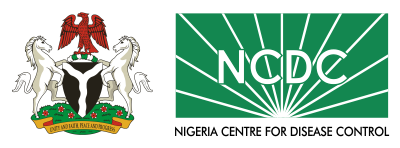Between the 1st of August to 5th of November 2019, Nigeria has experienced an upsurge in cases of yellow fever with 511 suspected cases in three states – 309 from Katsina, 162 from Bauchi, and 40 from Benue. Of the samples tested from these cases, 83 were confirmed positive in Katsina (43), Bauchi (34) and Benue (6).
Since the beginning of the year, the Nigeria Centre for Disease Control (NCDC) and the National Primary Health Care Development Agency (NPHCDA) have been working with development partners to support the states to prevent and reduce the number of cases and deaths.
This year, Katsina State has recorded 599 suspected cases, 43 confirmed cases and 77 deaths among suspected cases. A mass vaccination campaign was carried out in the State in September 2019.
Bauchi State has been reporting suspected cases of yellow fever mostly in Alkaleri LGA. This year, the State has recorded 183 suspected cases, 34 confirmed cases and 24 deaths among suspected cases.
Following the outbreak in Alkaleri LGA, a reactive vaccination campaign was carried out. Benue State has recorded 150 suspected cases, six confirmed cases and no death in 2019. Vaccination campaigns have been carried out in three LGAs of the state this year- Vandekiya LGA in January 2019, Oju and Ado LGAs in September 2019.
In response to the increase in cases, a multi-agency yellow fever Emergency Operations Centre (EOC) was activated on the 5th of November 2019. Three Rapid Response Team (RRTs) have been deployed to Katsina, Bauchi and Benue this week to support the outbreak response.
Working together, NPHCDA, NCDC and development partners recently implemented yellow fever mass vaccination campaigns in Alkaleri LGA of Bauchi, two LGAs of Benue (Oju and Ado) and all the LGAs in Katsina.
All the campaigns were implemented between September and October 2019. In total, yellow fever vaccination campaigns have been implemented in 13 of the 36 states in Nigeria and in the FCT.
Since the re-emergence of yellow fever in Nigeria in 2017, NCDC, NPHCDA and the National Arbovirus and Vector Research Centre (NAVRC) have been working together to support states to investigate each case and respond to outbreaks.
Yellow fever virus is spread through bite of an infected mosquito. There is no human-to-human transmission of the virus. Yellow fever is a completely vaccine-preventable disease and a single shot of the yellow fever vaccine protects for a lifetime.
In Nigeria, vaccination against yellow fever is primarily through the routine childhood immunisation. Where necessary, catch up campaigns are carried out to increase population immunity. The yellow fever vaccine is available for free in all primary healthcare centres in Nigeria as part of the routine childhood immunisation schedule. We encourage every family to ensure that children receive all their childhood vaccines.
In addition to the vaccine, the public is advised to keep their environment clean and free of stagnant water to discourage the breeding of mosquitoes and ensure the consistent use of insecticide treated mosquito nets, screens on windows and doors to prevent access for mosquitoes. Especially, hikers, park visitors and people engaged with activities in the wild are encouraged to be vaccinated against yellow fever. It is important to avoid self-medication; visit a health facility immediately if you feel ill.
Healthcare workers and members of the public are reminded that the symptoms of yellow fever include yellowness of the eyes, sudden fever, headache and body pain. If you have these symptoms or notice someone in your community displaying them, please contact your nearest primary healthcare centre.
NCDC was established in the year 2011 in response to the challenges of public health emergencies and to enhance Nigeria’s preparedness and response to epidemics through prevention, detection, and control of communicable diseases. Its core mandate is to detect, investigate, prevent and control diseases of national and international public health importance.
The NPHCDA, established in 1992, and merged with the National Programme on Immunization (NPI) in 2007, is the domestic development agency for health. Between 1986 and 1992, remarkable and innovative progress was made in the development of Primary Health Care, focusing on the Local Government Areas (LGAs), resulting in Nigeria being placed in the front rank of countries in the world that have advanced the process of equitably improving the health and quality of life of its people through primary healthcare.
Contacts
NCDC Toll-free Number: 0800-970000-10
SMS: 08099555577
WhatsApp: 07087110839
Twitter/Facebook: @NCDCgov
